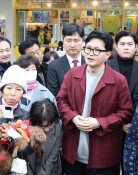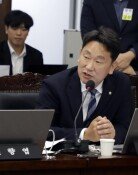Poor Education Hampers Economic Growth
Poor Education Hampers Economic Growth
Posted May. 16, 2005 23:18,
The Rand Institute, a respected American think tank, released its report titled Strategic Choices in Science and Technology: Korea in the Era of a Rising China, prepared for the Korea Institute of Science and Technology Evaluation and Planning. In this report, the institute criticized Koreas education system by saying the recent boom in Korea of sending children abroad to study is not just the senseless behavior of the well-off, but a serious symptom of failure in the education system. It said, This is an important issue in Korea, but it has not yet been well-addressed.
The necessity of educational reform in Korea is nothing new, but recently, increasing concern is being raised among economy experts both at home and abroad, as they predict failure in education policy not only causes social problems, but also will directly hamper economic growth.
Education Expenses Hinder Consumption-
The worst side-effect of failed education policy is the huge amount of money remitted to children staying in overseas countries. Last year, the total remittance to children studying overseas amounted to a whopping 2.48 trillion won or 2.5 billion dollars.
The major cause of soaring realty prices in Gangnam (the most privileged area in Seoul) is also related to education. Policy chief Chang Seong-su of the Korea Housing Institute said, The high house prices in Gangnam area have much to do with the well-established private education infrastructure of the region.
Failure to Foster Creative Individuals-
International Institute for Management Development of Switzerland recently ranked Korea 52nd out of 60 countries for evaluating how well college education meets social requirements. This can be interpreted to mean that the competitiveness of Korean college education ranks 52nd in the world.
As private education infrastructure is concentrated at Gangnam in Seoul, large companies and public corporations are reluctant to move to provinces. Even when they open a branch in the provinces, most high-ranking employees leave their families in Seoul for the sake of their childrens education. More than few employees of Samsung Electronics LCD factory plant in Chonan, Chungnam province commute from Seoul.
Economics professor Kim Young-yong of Chonnam University said, Booming private institutions are a huge stumbling block to balanced regional development.
Burdensome Education Costs Deter Would-Be Parents-
The impaired education system is even responsible for lowering social mobility. According to research done by Seoul National University (SNU) last year, the number of children who entered the SNU college of social science from wealthy families was on average, 8.2 per 10,000, about 1.3 times higher than those from average backgrounds. The ratio has jumped to 16.8 in recent years.
Women often have to choose between having children or working because it costs an enormous amount of time and energy to help children prepare for college entrance exams. A survey conducted by the Korean Womens Development Institute revealed that the single biggest reason cited for not having children was high education expenses (28 percent).
Byong-Ki Lee Chang-Won Kim eye@donga.com changkim@donga.com







